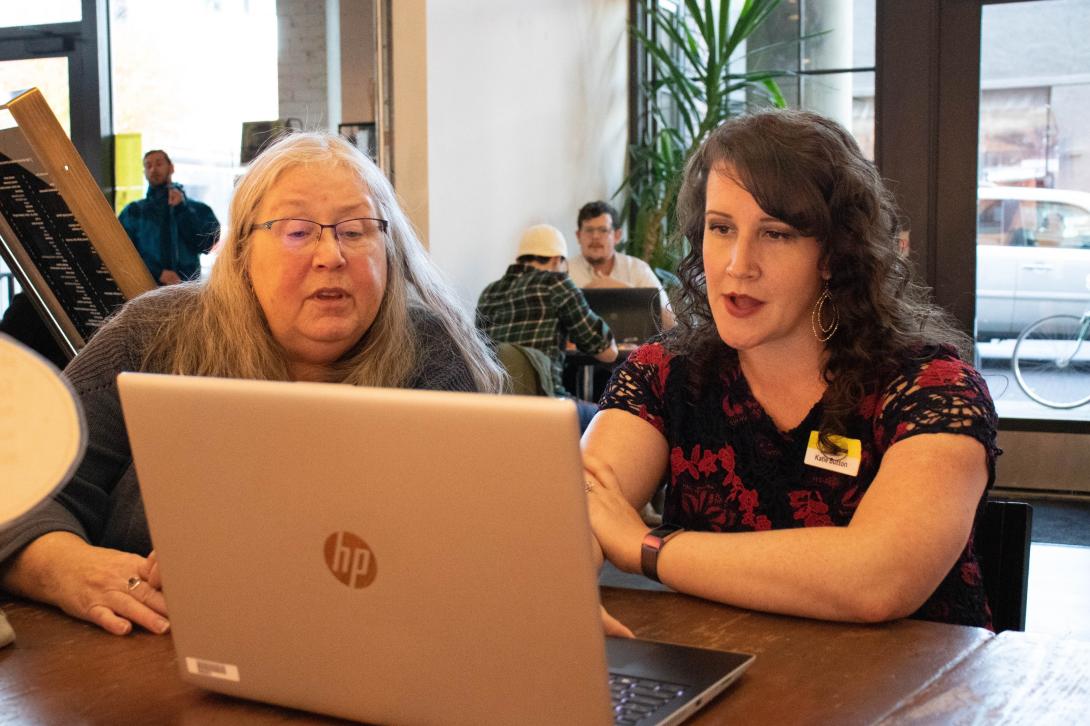
Health insurance enrollment in Oregon has soared since the pandemic hit.
In April, enrollment jumped 44% on the Oregon Health Insurance Marketplace compared with the same month last year amid rising unemployment due to the coronavirus.
Oregon’s job losses have been staggering. Just two months into the pandemic, 266,000 Oregonians lost their jobs, pushing unemployment to 14.2% in April after sitting near a record low of 3.5% in March, according to the Oregon Employment Department. More than half of those who were laid off were in the leisure and hospitality sector, which has been hit hard by coronavirus business closures, the department said. Health care and social assistance, as well as retail trade, were also hard hit, losing 26,800 and 22,500 jobs, respectively, the department said. In fact, no employment sector gained jobs during April, the department said.
With those layoffs, many Oregonians have lost their employer-backed health insurance. The law ensures continued coverage for 18 months under the Consolidated Omnibus Budget Reconciliation Act, or COBRA. But coverage can be expensive because laid-off workers have to pay the full premium plus a 2% administrative fee. So many people have flocked to the marketplace, an online portal where people can buy health insurance and qualify for federal subsidies.
Normally, people can only sign up during the prescribed enrollment period at the end of the year. But the marketplace allows for a 60-day special enrollment period when people’s circumstances change, such as losing health insurance coverage, moving, getting married, having a baby or adopting a child.
Oregon’s not the only state that’s seen a spike in enrollment. With massive job losses nationwide, thousands of consumers have signed up for private coverage in other states, according to data collected by the Commonwealth Fund.
“It definitely shows an increase in demand for Marketplace coverage,” Chiqui Flowers, the administrator of the Oregon Health Insurance Marketplace, said of Oregon’s increase. “It’s also an unfortunate thing to see just because it’s telling us people are losing their previous coverage, for a variety of different reasons.”
A relatively small number of people in Oregon buy coverage through the marketplace. For this year, more than 148,000 people signed up, according to the Kaiser Family Foundation. The Department of Consumer and Business Services declined to release the number of people who signed up this April and last, saying that it is not authorized to share that data. The Centers for Medicare & Medicaid Services did not respond to a request for the data.
The marketplace only insures a minority of Oregonians. More than 1 million residents are on the Oregon Health Plan, the state’s version of Medicaid. In March and April, the plan added nearly 50,000 people.
Another 600,000 people in Oregon are insured through Medicare, the federal health insurance for seniors and people with disabilities. And about 1.8 million private- and public-sector employees receive or pay for insurance through their workplace.
The marketplace, however, is the only venue that offers federal subsidies for premiums.
“The goal or the hope of (the) marketplace is that it gives options to people who fall outside of having insurance through their employer or having insurance through OHP,” said Leah Andrews, a spokesperson for the Department of Consumer and Business Services.
The average tax credit on the marketplace is $456 this year, while the average cost of a premium after the credit is $137, Flowers said. During the open enrollment period for 2020, 72% of Oregonians who signed up for Marketplace plans were eligible for a subsidy based on their income.
Oregon’s marketplace website has a window shopping tool that allows customers to shop for different plans and connect with community partners to figure out whether they qualify for subsidies or for the Oregon Health Plan, Andrews said.
Still, officials at the Department of Consumer and Business Services worry that people might not sign up and then could end up with huge medical bills.
“If there’s a list of things you want to have in your life, health insurance might not make it to the top of people’s lists because of price, but we talk about what if you had an accident and you weren’t covered,” Flowers said.“Can you just imagine how much your out of pocket costs could have been?”
Michael Tobin can be reached at [email protected].